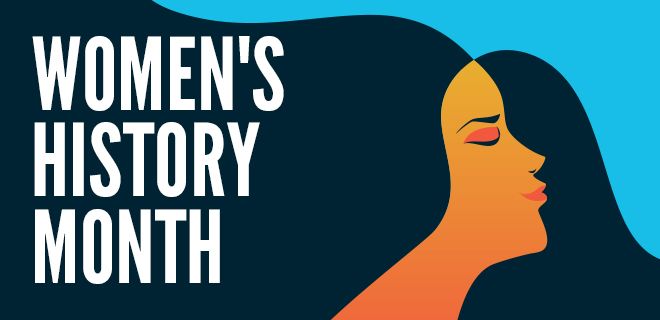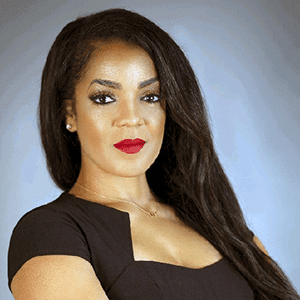
Never underestimate the power of creating space for yourself.
Crystal Foote, an award-winning marketing professional and entrepreneur, learned that two decades into her career.
Foote recently launched two businesses, Digital Culture Group and ThePartyStarter, to target and uplift diverse audiences within the advertising and digital media industry. After years of trying to push DEI initiatives for others, she found the power to blaze her own path.
Both a creative and analytical thinker, Foote sustained a diversified advertising career working with a wide range of clients, from Fortune 500 companies to small businesses. Take a journey with me to the beginning, where Foote was inspired to start her career after watching Vivica A. Fox in Two Can Play That Game.
Life Imitates Art: The Start of Her Career
 Andrew Byrd: Can you tell me how you started your career in ad tech?
Andrew Byrd: Can you tell me how you started your career in ad tech?
Crystal Foote: Although it might sound unusual, my interest in advertising began after watching Two Can Play That Game featuring Vivica A. Fox, who played a character in advertising. Similarly, I watched What Women Want with Mel Gibson and had the same reaction. I found the profession to be very creative and analytical, appealing because it allows me to utilize both sides of my brain.
These movies acted as a catalyst for me to explore marketing and advertising degrees in college. I eventually secured internships that paved the way for my career in advertising. After graduating, I started my career at MEC Global, now known as WaveMaker. While there, I worked across various accounts and rapidly gained expertise in advertising.
AB: I love your inspiration for wanting to start a career in advertising and digital media, especially since a Black woman in a film inspired you. I’m sure that starting in your career in real life, you were an outlier as a Black woman in advertising. How was that experience?
CF: Yeah, that’s an interesting question because I come from a diverse area of California, and my family is interracial. When I arrived in New York, one of the country’s largest and most diverse cities, I was surprised by the lack of people who looked like me in the advertising industry or at the agency where I worked.
Despite the challenges, I was a quick learner and determined to make a difference. To succeed, I had to feel comfortable in my own skin and embrace the challenge. At times, it felt like I represented an entire demographic, which could be overwhelming. However, I learned to navigate through it by being strategic and allowing my work to speak for itself. Ultimately, I stood on my own and proved myself through hard work and dedication.
Blazing Her Own Path: The Launch of Digital Culture Group and ThePartyStarter
AB: After years of experience in advertising and digital media, you are now launching two businesses. What led you to take that leap?
CF: I launched my own companies because I realized I couldn’t rely solely on my former employers to share my vision and passion for promoting DEI in the digital ecosystem. The social unrest of 2020 only strengthened my sense of urgency to take action and make a difference.
While I spearheaded my former employer’s Multicultural and diversity initiatives for three years, I decided to live by my words of empowerment and launch my own companies. With these companies, I wanted to promote DEI from a culture-first perspective. I wanted to tell this story without any limitations, so I decided to launch my own two companies.
AB: The first company you started was Digital Culture Group. Can you tell me about the business?
CF: I founded Digital Culture Group to address the lack of focus on diverse and multicultural audiences in advertising and to create authentic and data-driven campaign strategies for them.
From what I’ve observed in the market, some advertisers and agencies assign a team to create campaigns targeting specific multicultural groups but often struggle to understand how to reach these segments effectively. They tend to rely on selecting publications that they think will align with the intended audience based on factors such as language or ethnicity in the title.
However, assuming that a campaign will be successful because it targets, for example, African American audiences on a publication with “Black” in its title is often ineffective, as the audience, they aim to reach may not be present in those publications. This approach can lead to frustration when the campaigns fail to perform well and discouragement for future Multicultural and diverse campaigns.
At Digital Culture Group, we offer omnichannel media activations, creative production, measurement analytics, and data solutions. This allows us to deliver innovative and effective digital campaigns that authentically engage diverse audiences and drive tangible business results. As a partner to advertisers and agencies, we are dedicated to creating meaningful, inclusive, and successful advertising campaigns.
Our data strategy involves exploring machine learning, AI, audience taxonomies, and datasets, as well as partnering with different data providers to reach our intended audience deterministically.
AB: I love that ideology as the foundation of creating campaigns, and I want to dig deeper into that. What is your data strategy to target these audiences and build out the campaigns?
CF: Our data strategy involves exploring machine learning, AI, audience taxonomies, and datasets, as well as partnering with different data providers to reach our intended audience deterministically. Additionally, we created a Multicultural and inclusive data repository by utilizing various data sources, including voter registration, census, and geolocation data.
By utilizing this data, we can craft and understand our audience segment while ensuring privacy compliance for each individual we aim to reach. We can then layer other taxonomies, such as psychographic or behavioral purchase data, on top of demographics to gain further insights into each individual’s attributes. For instance, we can determine if a person is African American, has a household income of XYZ, listens to podcasts daily, and frequently shops at ABC retailers.
 AB: The other company you launched was ThePartyStarter which is more event-based. How did this idea come about? Does it work in conjunction with Digital Culture Group, or is it a separate entity?
AB: The other company you launched was ThePartyStarter which is more event-based. How did this idea come about? Does it work in conjunction with Digital Culture Group, or is it a separate entity?
CF: ThePartyStarter was a passion project for me, born out of my experiences in the ad tech space. As someone who attends numerous conferences and events, I noticed a significant lack of minority-owned event businesses involved in event planning or services. This was consistent across various locations, such as the south of France, New York, and Atlanta.
After conducting some research, I discovered that there is bias in the events industry, where even some critically acclaimed and well-known minority-owned event businesses are not included in high-end directories for venues and planners. To increase awareness of diversity and Multiculturalism, I created an events marketplace platform called ThePartyStarter. It allows people planning a professional or personal event to select from a diverse group of event vendors catering to their needs. This platform ensures that people from different backgrounds can have equitable opportunities in the events industry.
“We Aren’t Saving Lives”: The Power to Change Societal Perceptions
AB: I see you putting your beliefs into practice and ensuring that direct action comes from that. Is there any advice you want to give to the ad tech community to follow in your footsteps?
CF: This is a loaded question because there is so much that I want to say to the advertising world. Don’t underestimate the power of authenticity when connecting with diverse audiences.
There is an adage that I’ve heard since I started my advertising career, “we aren’t saving lives’. While it’s true that advertising may not save lives like doctors or first responders do, it’s important to recognize that our work has the power to shape people’s perceptions, beliefs, and behaviors.
By striving to authentically represent and connect with diverse audiences, we can help create a more inclusive and equitable society. To truly connect with our audience, it’s important to take the time to listen and understand their unique perspectives and experiences. And above all, be willing to learn, grow, and adapt as we work to create more authentic connections with our audience.
Make an effort to partner with diverse creators, content producers, minority-owned businesses, and diverse interns who can bring new ideas and fresh perspectives to the table.
So keep pushing forward and always strive to make a positive impact on the world around you.